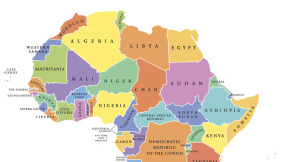
A new report from a pro-choice research organization found that in the first four months of 2021, more than 500 pro-life bills have been introduced at the state level and more than 60 have been enacted nationwide.
While the federal government has come under the control of the Democratic Party, pro-life legislation has made much progress at the state level in 2021.
According to Elizabeth Nash and Lauren Cross of the Guttmacher Institute, "2021 is on track to become the most devastating antiabortion state legislative session in decades."
"Since January, there have been 536 abortion restrictions, including 146 abortion bans, introduced across 46 states," the report, published Friday, explained. "A whopping 61 of those restrictions have been enacted across 13 states, including eight bans."
Marjorie Dannenfelser, president of the pro-life grassroots lobbying group Susan B. Anthony List, praised the progress the pro-life movement has made at the state level this year.
"The unprecedented surge of pro-life activity in state legislatures this year proves life is winning in America," she said.
"Across the nation, state lawmakers acting on the will of the people are taking bold steps to humanize our laws and challenge the radical status quo imposed by Roe v. Wade," Dannenfelser added.
As Dannenfelser noted, the bills enacted include legislation "to stop late-term abortions after five months of pregnancy, end lethal discrimination against unborn children for reasons like a Down syndrome diagnosis, protect unborn babies from the moment their heartbeat can be detected, safeguard women from dangerous abortion drugs, and more."
"There could not be a stronger rebuke to the Biden-Harris administration, whose pro-abortion agenda is deeply unpopular with Americans of all stripes," the activist argues. "The states are sending an unmistakable message to pro-abortion Democrats nationwide — and to the Supreme Court — that the pro-life movement will never rest until unborn children and their mothers are protected in the law."
The Guttmacher Institute, originally founded as a branch of Planned Parenthood before splitting in 2007, characterized the rapid passage of the legislation in several states as part of an effort "testing the limits of what the new U.S. Supreme Court majority might allow." The group also claims that the bills are "laying the groundwork for a day when federal constitutional protections for abortion are weakened or limited entirely."
Since late last year, the Supreme Court has consisted of six Supreme Court justices appointed by Republicans and three justices appointed by Democrats.
The court's composition has given pro-lifers optimism that the justices will be more likely to rule in their favor should any of the multiple pro-life laws passed in recent months come before the nation's high court.
Meanwhile, a handful of congressional Democrats, who find themselves on the other side of the abortion debate, have called for expanding the number of Supreme Court justices to mitigate the effect of the conservative majority.
The Guttmacher report lamented that "between April 26 and 29, 28 new restrictions were signed into law in seven states — almost half (46%) of the restrictions passed so far in 2021."
Arkansas is singled out as the state that passed the most abortion restrictions in one year. After enacting 20 restrictions so far in 2021, the Natural State has tied Louisiana's 1978 record for the most abortion restrictions implemented by one state in a single year.
According to the Family Council, pro-life laws passed in Arkansas include a bill prohibiting abortion in almost all cases, a requirement that women seeking abortions view an ultrasound, a ban on the state government doing business with abortionists, a prohibition on abortionists in public schools and a ban on the delivery of abortion pills by mail.
Additionally, the state enacted a law enabling cities to declare themselves pro-life.
Oklahoma Gov. Kevin Stitt signed three pro-life bills into law last week. Newly passed pro-life measures in Oklahoma include a law banning abortions after a fetal heartbeat can be detected, a law classifying abortion as "unprofessional conduct" and a requirement that abortion doctors have board certification in gynecology and obstetrics.
On the same day that Stitt signed multiple pro-life measures into law, Montana Gov. Greg Gianforte signed into law restrictions on access to the abortion pill, a requirement that doctors give women seeking an abortion the opportunity to undergo an ultrasound and a law banning abortions after the point when an unborn child can feel pain.
The Guttmacher Institute expressed concern about "states' continued focus on restricting medication abortion," specifically mentioning "four new restrictions in Montana, three in Indiana and another restriction in Arizona" that were implemented last week.
Other pro-life laws passed last week include a ban on abortions of babies with Down syndrome in Arizona, a heartbeat bill in Idaho, a requirement that abortion doctors in Arkansas obtain a license by the State Department of Health and another Oklahoma law that would automatically outlaw abortions in the state if the U.S. Supreme Court were ever to revisit its Roe v. Wade decision that legalized abortion nationwide.
South Dakota Gov. Kristi Noem signed four pro-life bills into law in late March. The laws included a ban on abortions performed with the knowledge that the unborn baby had Down syndrome, a ban on contracts forcing women to have abortions, a law establishing a definition of abortion that labels a fetus an "unborn human being" and a law requiring doctors to inform women seeking abortions about their option to receive an abortion pill reversal.
In February, Noem signed into law a measure that requires doctors to provide care for infants who survive botched abortions. A similar bill was passed in Kentucky in January.
The surge in pro-life laws at the state level comes as Republicans control most state legislatures nationwide.
According to the National Conference of State Legislatures, Republicans currently control 30 state legislatures across the U.S. while Democrats control 18. The Minnesota legislature has split control, with each party holding one of the two chambers. Although the Nebraska legislature is unicameral and officially nonpartisan, a majority of its members are registered Republicans.
Courtesy of The Christian Post













